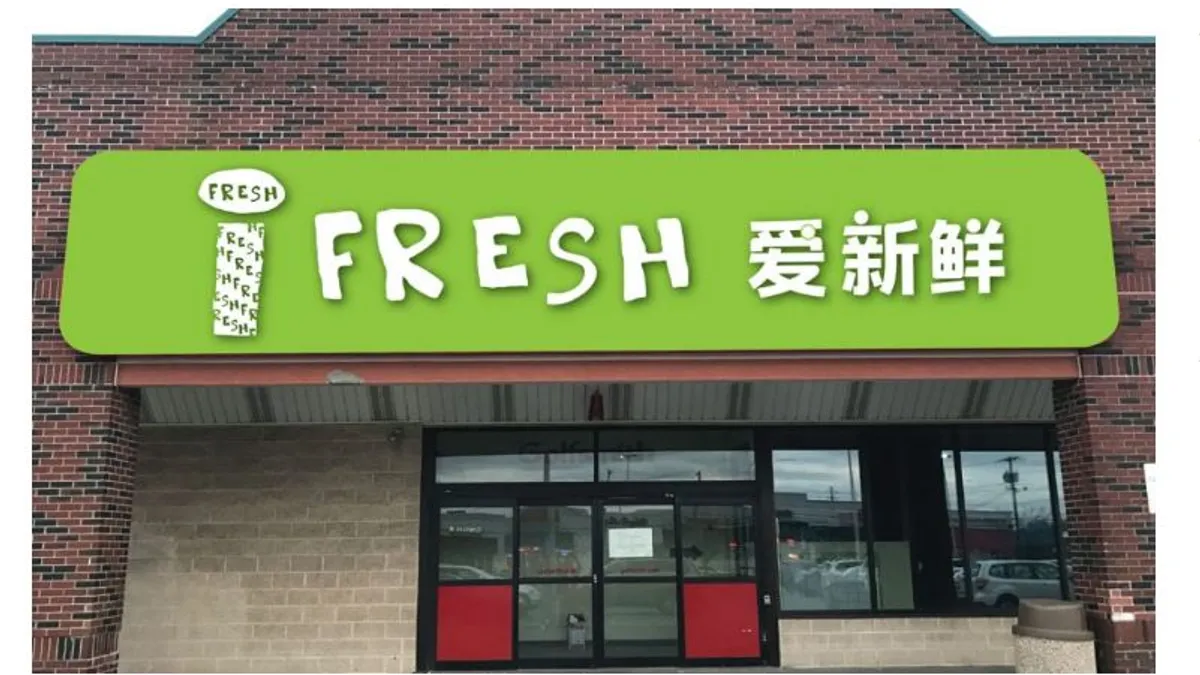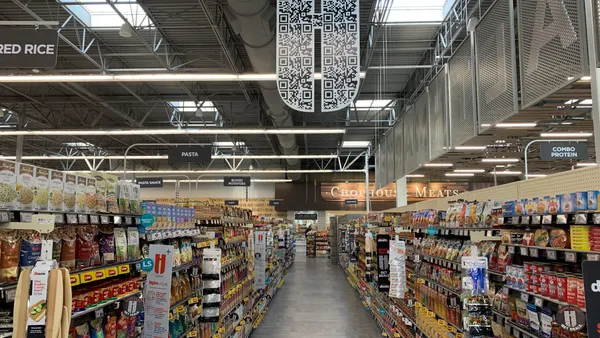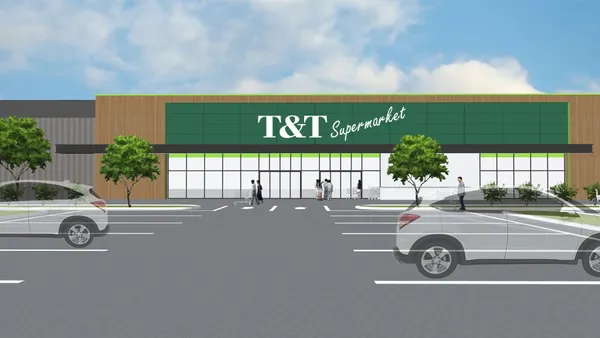Dive Brief:
- Asian American supermarket chain and online grocer iFresh will open its tenth U.S. location in North Miami next month, according to a press release. The grand opening will be on Feb. 7.
- The 30,000 square foot store has been under construction for four years, and at $8 million represents the largest location investment so far by the chain. It will be the largest supermarket in the area offering Asian foods, snacks, beverages and household products. It will also have seven food vendors.
- iFresh will also lease a portion of the constructed space to local businesses like a spa, Chinese tea store and liquor store.
Dive Insight:
iFresh's new store operates among a sea of Hispanic grocers in Miami as well as conventional competitors like Walmart and Aldi. But the northern region of the city has seen a surge in Asian consumers and retail interests. The city of North Miami is currently in the planning phase of developing a Chinatown district.
With locations up and down the East Coast, iFresh is capitalizing on consumer demand for authentic, hard-to-find groceries and dining experiences. The $8 million investment in the North Miami location indicates the opportunity iFresh sees to appeal to a broad audience, both online and in-store. iFresh says it also plans to open another location in Miami as well as one in Connecticut in the coming months.
iFresh's expansion comes less than two years after it announced it would close some stores and refocus on in-house food prep, better payment systems and expanded e-commerce service. Earlier that year, the company announced a partnership with Alipay, the payment service from Chinese e-tailer Alibaba.
As the U.S. grows more diverse, supermarkets across the country are making efforts to expand selections and open standalone markets that cater to specific demographics. Last year, Jet.com expanded its offerings in partnership with H Mart and in 2018 Be-Se-To opened a two-story store in Catonsville, Maryland with restaurant offerings and grocery. H Mart expanded its same-day delivery service to customers nationwide as well.
Research indicates the density and spending power of multicultural consumers is growing. The U.S. Census found that the country's population will add 98 million multicultural consumers by 2060, while around 44% of the current 75 million millennials in the U.S. are a minority.













